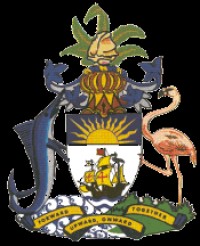The Bahamas has signed its 11th Tax Information Exchange Agreement (TIEA) and has initialled nine additional agreements well in advance of the G20 March 31, 2010 deadline to meet the internationally agreed tax standard.
TIEA negotiations between The Bahamas and Mexico were concluded with the signing of the agreement today. The Bahamas also expects its 12th TIEA in the coming weeks.
TIEA negotiations also have been successfully concluded with Germany, Canada, Spain, Australia, South Africa, South Korea and the seven Nordic countries. The seven Nordic countries are Norway, Sweden, Finland, Denmark, Iceland, Greenland and Faroe Islands. Signature on agreements with these countries will follow the completion of the relevant internal procedures required for the signing of treaty instruments. These internal procedures, which have been fast tracked by some countries, include the added requirement of translating the Agreement into relevant native languages.
The Bahamas previously has signed agreements with the United States of America, Great Britain and Northern Ireland, China, France, New Zealand, Argentina, Belgium, the Netherlands, Monaco and San Marino.
The TIEA with Mexico is the sixth Agreement concluded by The Bahamas with a member of the G-20; and the seventh such arrangement entered into with an OECD member. (See Tax Cooperation for additional details on The Bahamas Stance on International Cooperation and to download copies of signed Agreements)
The Bahamas has long sought a level playing field on tax information change. The Bahamas, as a sovereign nation, sought in 1999 and again in 2002, to protect its economic interests and fiscal autonomy in all negotiations with the OECD. The Bahamas considered the establishment of a level playing field, where all OECD members and major finance centres agreed to implement the same standards, to be critical to its economic interests. Since then, The Bahamas has been an active participant in the Global Forum and its various sub-committees.
The Bahamas Financial Services Board (BFSB) believes the decision to endorse and meet the OECD Standard reinforces The Bahamas’ unwavering commitment to be a trusted jurisdiction for clients and to be a responsible member of the international community. “By meeting the OECD standard the Government has demonstrated that it intends to ensure The Bahamas remains a well regulated jurisdiction which meets evolving standards for offering international financial services,” says BFSB CEO and Executive Director Wendy Warren.
“At the same time clients can be assured that The Bahamas will only exchange information on agreed and transparent protocols. Legislative and administrative regimes in The Bahamas have, and will continue to have, respect for the privacy of our clients and will preserve banking confidentiality.”
Additional Background Information
The Bahamas operates in a globally integrated market for financial services. As a result the country’s counter-money laundering legislation; the establishment of the Financial Intelligence Unit; its comprehensive self-assessment of all bank, trust, and brokerage facilities for compliance with the FATF 40 recommendations; the elimination of bearer shares; and many other legislative developments in 2000 served to transform the industry.
AML -- The Bahamas’ excellent track record in the fight against money laundering dates back to 1987 when it criminalized the proceeds of drug trafficking through legislation. Two years later The Bahamas became the first country to ratify a UN Convention against the illicit trafficking of narcotic drugs and in 1996 also became the first international financial centre to criminalize money laundering. Prior to this time self-regulatory professional organizations and financial firms had appropriate customer due diligence as a focal point of their work. The comprehensive Money Laundering Act in 1996 expanded the offences covered to encompass proceeds of other crimes besides drugs.
These legislative initiatives created a superior AML regime, formally enacting industry best practice policies for due diligence and know-your-customer principles.
This compliance culture has been the key to prioritizing counter money laundering measures and driving the requisite vigilance at national, regulatory and institutional levels. This can be measured by the relative size of expenditure to implement an effective regulatory and AML regime, capable of contributing to financial stability.
FIU -- One such example is the Financial Intelligence Unit (FIU). In its intelligence role, the agency is fully committed to the more than 120 member Egmont Group’s “statement of purpose” which incorporates “principles for information exchange between financial intelligence units for money laundering and terrorism financing cases.” Indicative of the agency’s commitment was the appointment of The Bahamas’ Deputy Director to chair the Implementation Committee, tasked with the responsibility of overseeing the transition of Egmont into a permanent international organization. It was also responsible for successfully sponsoring Egmont membership of the majority of the Caribbean FIUs.
KYC -- The elimination of licenses for managed banks took place in 1998. The Central Bank of The Bahamas requires that all banking institutions maintain adequate corporate governance in The Bahamas itself and that books and records are kept in the country, ensuring full accountability to KYC requirements.
